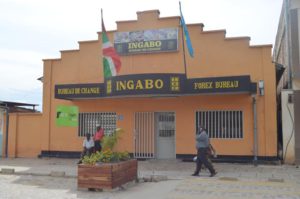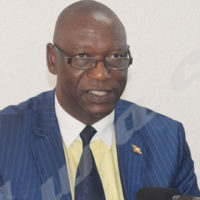Foreign currencies continue to rise in price on the black market. Small importers say the lack of the former hampers their commercial activities. “Foreign currencies are increasingly becoming scarce and their price is constantly climbing as a consequence,” says Christophe Niyongabo, a shoe salesman.

One of the foreign currency exchange agencies in Bujumbura
Today, a US dollar is sold at more than BIF 2,800 on the black market while it is sold at BIF 1735 on the official market in the country.
“On Monday, 25th September, a US dollar cost BIF 2900 but was bought at BIF 2,800 on the black market the next day.
Given this price instability, I cannot go to Uganda to get goods, I risk going bankrupt,” Niyongabo says.
He also says small traders do not receive foreign currency at the rate of the Burundi Central Bank. “Given the purchasing power of people from Bujumbura, if I buy a US dollar at more than BIF 2,800, my products will not sell as they will be very expensive,” said Niyongabo adding that he’s confused. “I do not know what to do. I was planning to go to Uganda next week to get supplies, but I have not yet got the foreign currencies. I am waiting for the price of the dollar to fall,” he said with a mocking smile.
A currency trader says foreign exchange prices increase according to the demand. “It’s the law of supply and demand,” he said. The Central Bank has not provided us with foreign currencies for over two years, and their amount that comes in the country has decreased substantially. “That’s why you see a lack of foreign currency on the black market,” says a foreign currency trader. He calls on the government to allow commercial banks to serve in foreign currency customers who receive money transferred from abroad via money transferring companies like Western Union.
According to a source from the Central Bank, this lack of foreign currency is the result of the suspension of bilateral cooperation between the European Union and Burundi. In March 2016, the EU announced its suspension of financial direct aid to the Government of Burundi. The EU, which was Burundi’s largest donor, used to contribute to more than half of the country’s budget.



















 IWACU Open Data
IWACU Open Data

